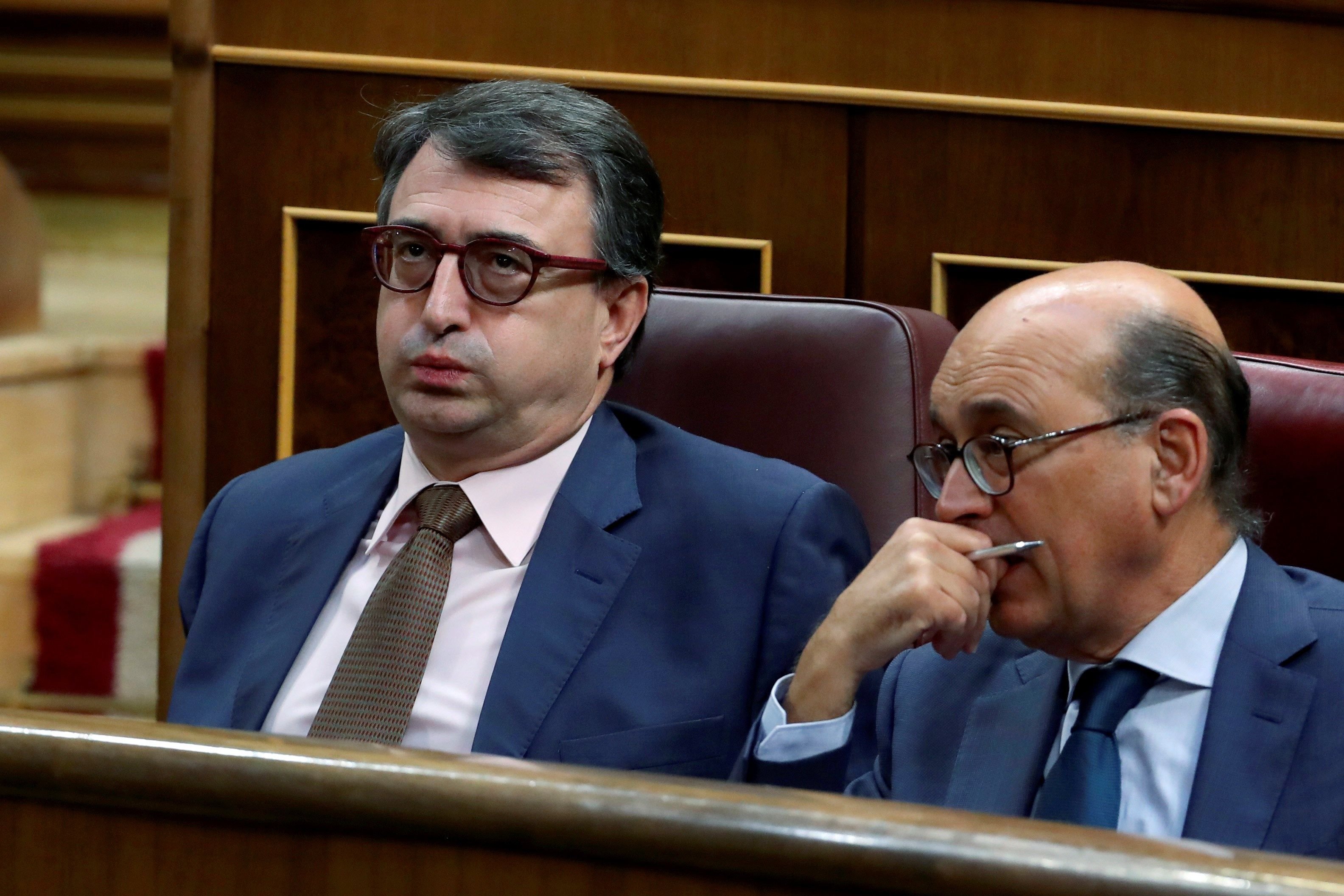The end of the Rajoy era is close at hand. Leaders of the EAJ (Basque Nationalist Party) have announced to the Congress they will give their support to the motion of no-confidence in the Spanish prime minister brought by the leader of the opposition, PSOE's Pedro Sánchez. This gives the motion enough votes to pass, which will force the prime minister from office.
Rajoy has the option of resigning before the vote, expected to take place Friday lunchtime. Sources from the Moncloa government palace are currently denying this will happen. The prime minister, however, hasn't retaken his seat for the afternoon session. Certain members of the central executive have returned with thousand-yard stares and PP spokespeople have been seen walking around busily.
EAJ's spokesperson, Aitor Esteban, was charged with announcing the party leadership's decision during his speech in the chamber this afternoon. Both PP and PSOE had already been informed. Esteban called on Sánchez to not "disappoint" them and summarised the reasons for his party's decision in three points: the outlook of political instability, the independence crisis and the future sentences for other branches of the Gürtel corruption case.
Firstly, Esteban mentioned the possibility that there will be "incessant motions of no-confidence", as Ciudadanos and Podemos have announced they would push for, in order to call elections, if Sánchez's motion doesn't prosper. The Basque expressed regret that that would leave "the Parliament in check for months", throwing Spain into chaos, and postponing Rajoy's departure.
Secondly, EAJ's spokesperson lamented that the Spanish government had left "certain topics to the courts", referring to the independence process. He called on PSOE to recognise that there is "a national problem" and that the solution isn't toughening the statute on the crime of rebellion, as Sánchez proposed. In fact, EAJ has yielded once it was confirmed that Catalan parties PDeCAT and ERC would vote for the motion, giving a united position from the pro-independence parties.
Third, Esteban discussed the Gürtel case, saying that it meant that even if his party didn't vote in favour of the motion of no-confidence, their "negative vote wouldn't mean greater stability". He also strongly criticised the facts of the case.
EAJ had shown awareness that their short-term interests, namely from the budget passed by the Congress last week, could be endangered by the vote. That budget still hasn't passed the Senate, however, where PP holds the majority. Esteban accepted this risk saying he didn't know if it would pass and warning the PP against possible "disloyal" acts, "as others are accused of". Sánchez committed to not changing the budget, in which EAJ gained 540 million euros (£470 million, $630 million) for the Basque Country.
Between them, PSOE and Podemos have 151 votes. Adding the parties that vote with them, ERC, PDeCAT, EH Bildu and now EAJ brings them to 180. They need 176 votes to pass their motion of no-confidence in the prime minister.

